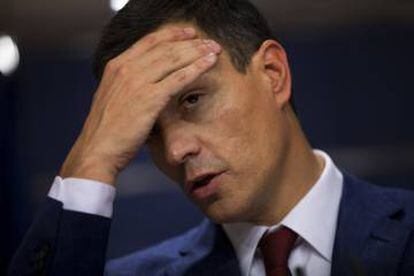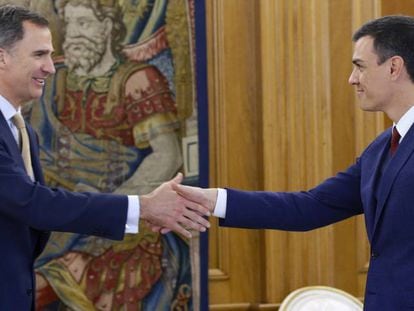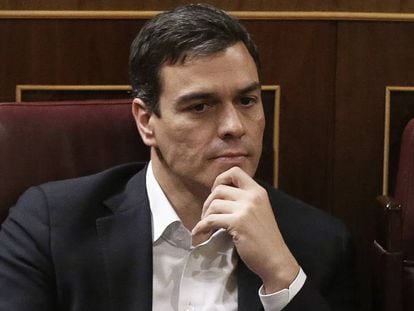Candidates play blame game as deadline for new election approaches
Spanish king confirms that no nominee has enough support to stand for prime minister

After his latest meetings with political leaders, King Felipe VI on Tuesday confirmed that there is no candidate with enough support to become the next prime minister of Spain.
Following constitutional law, the monarch will announce the dissolution of parliament next Tuesday, and call new elections for late June.
There is still an outside chance that parties might cobble together a last-minute deal before the May 2 deadline, but that possibility seems increasingly remote after four months of fruitless talks. There is a recent precedent in Catalonia, where an 11th-hour deal averted a fresh regional election.
All attempts at building alternative coalitions have been ‘a merry-go-round of quaint ideas’
PP leader Mariano Rajoy
Somebody, in fact, tried a similar move on Tuesday: Compromís, a regional group from Valencia, put forward a late proposal for a leftist coalition, but neither that nor the Socialist Party’s counter-offer of a government made up of independents managed to gain any traction.
The Constitution establishes that parliament shall be dissolved two months after the first investiture vote. On March 2, Socialist leader Pedro Sánchez unsuccessfully stood for the prime minister’s seat in a congressional vote, attracting the sole support of the emerging Ciudadanos and the small Canaries Coalition.
The deadline expires on midnight of May 2, and it will be the first time in Spain’s 40 years of democratic history that a general election has to be called anew.
Look forward, not back

Following his meeting with Felipe VI on Tuesday afternoon, Sánchez said that the king asked him to relay a recommendation to all parties: to “look forward,” avoid “a recrimination campaign” and try to discuss proposals “for the future” that the country needs.
The new race will likely begin on June 10, elections be held on June 26, and a new parliament constituted on July 20.
But recriminations were already on display late on Tuesday. Mariano Rajoy, leader of the Popular Party (PP), which earned the most votes at the December 20 election but fell well short of an overall majority, reaffirmed his idea that what Spain needs is a grand coalition between his party and the Socialists, but that Sánchez is to blame for his refusal to accept.
Sign up for our newsletter
EL PAÍS English Edition is launching a weekly newsletter. Sign up today to receive a selection of our best stories in your inbox every Saturday morning. For full details about how to subscribe, click here.
In Rajoy’s view, such an alliance – which could also include Ciudadanos, representing more than 200 seats in Congress out of 350 – would send out a strong message of stability to the outside world, and facilitate the kind of sweeping reforms that Spain needs.
It would be a “reasonable and coherent” government that would bring “moderation, stability and peace of mind” to the nation. By comparison, all of the Socialists’ attempts at building alternative coalitions have been “a merry-go-round of quaint ideas.”
Despite his complete lack of support from other parties, Rajoy is not considering stepping aside to let another conservative nominee take his place.
Meanwhile, Socialist leader Sánchez also reaffirmed his own desire to keep the PP and the regional nationalists out of any future deal he might reach during the upcoming race for La Moncloa.
“I always said that I would not let the government of Spain rest on political forces that want to break up Spain,” he said. “I will not be counting on them. After June 26, I will not negotiate with the PP or with the separatists.”
Sánchez also played the blame game, signaling out the anti-austerity Podemos for failing to support him.
“There are going to be new elections because Podemos’s hardline faction has won,” he said. “[Pablo] Iglesias never wanted to see a Socialist prime minister in office.”
English version by Susana Urra.












































